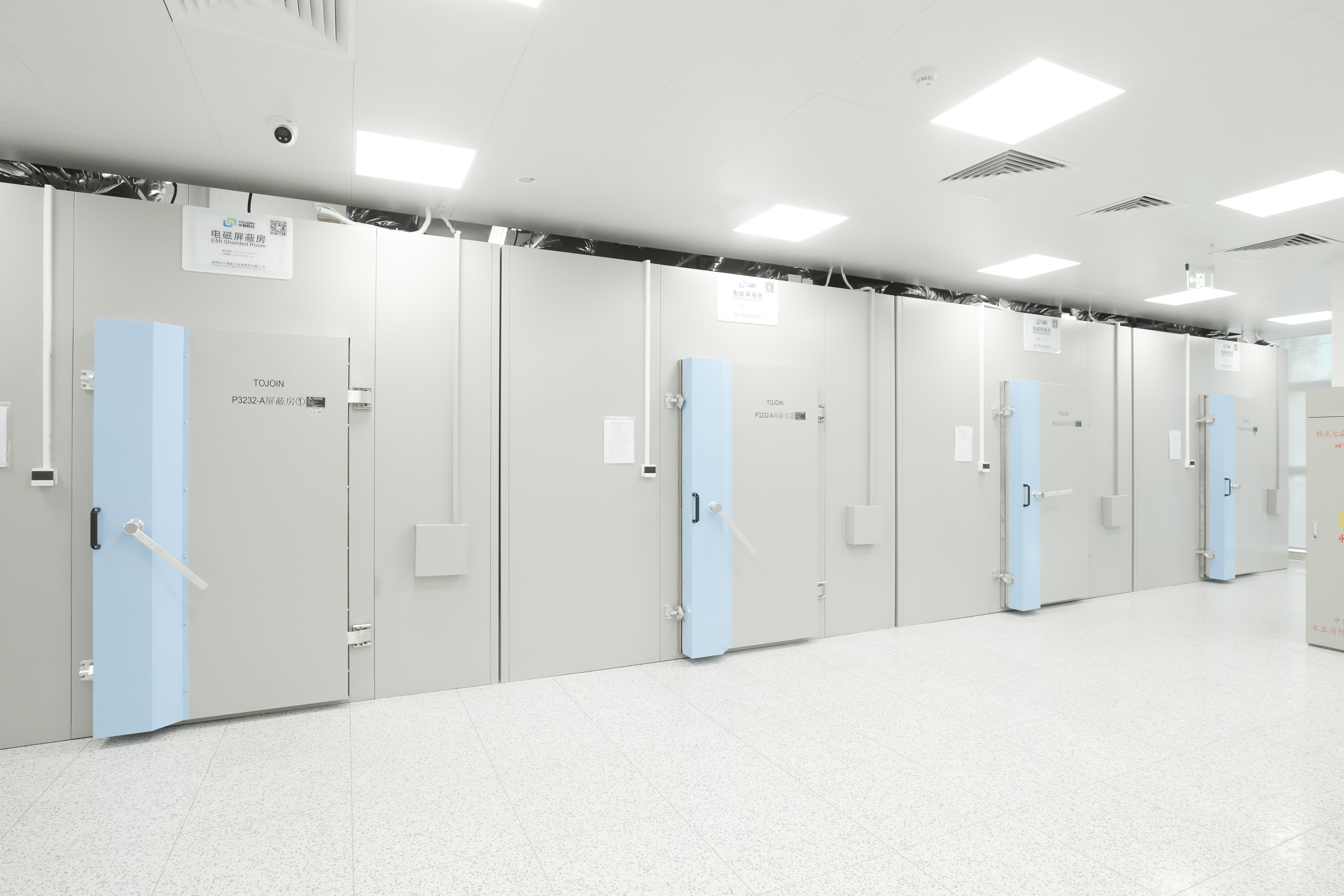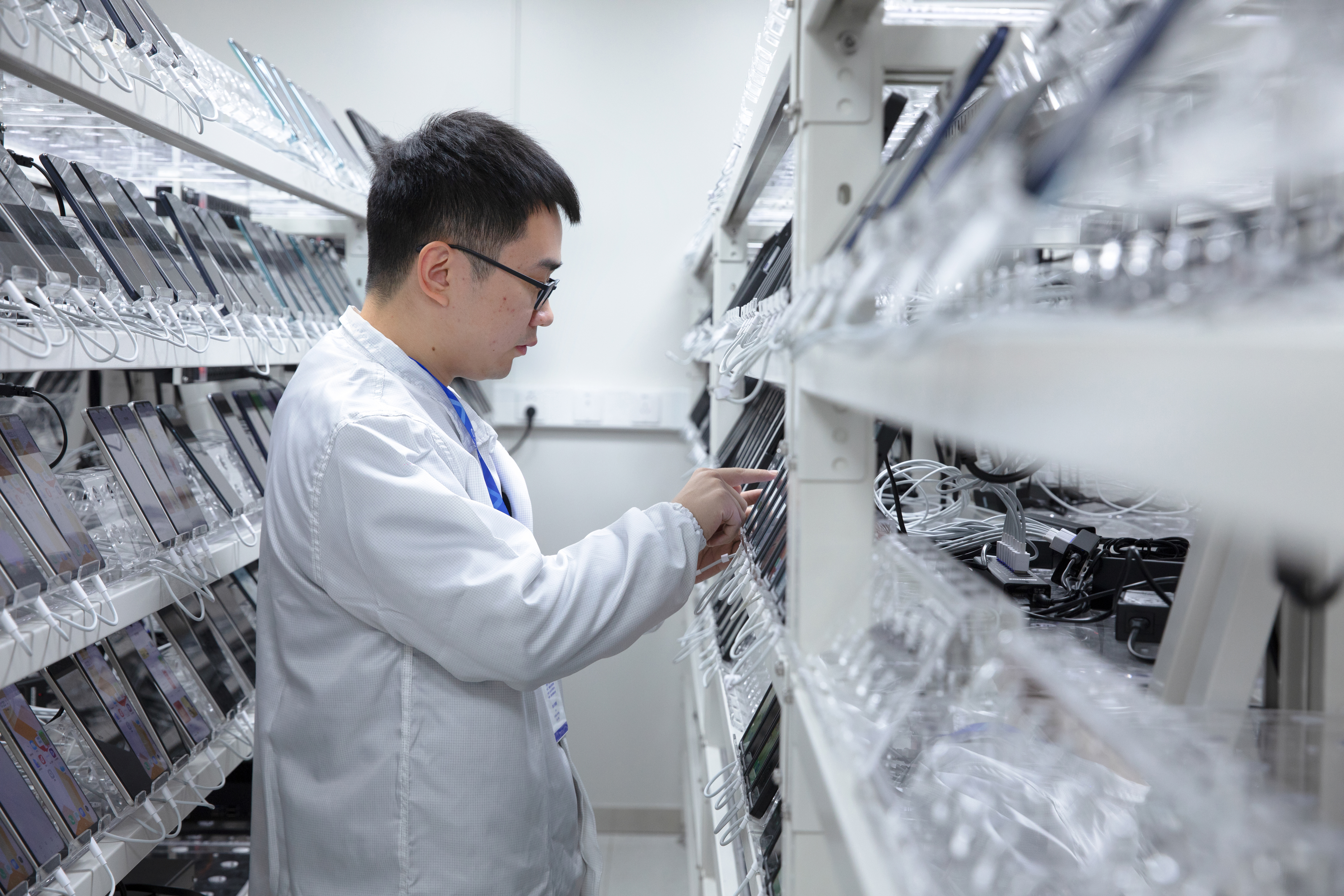vivo Unveils the Brand-new Communications Network Lab at its Global Headquarters
Shenzhen, December 5th
· The Communications Network Lab, set up in collaboration with the China Academy of Information and Communications Technology, will serve as a global base for mobile communication technology innovation.
· The new Lab is equipped to simulate a variety of real-world scenarios, accelerating the R&D and smartphone testing processes to guarantee superior product quality that meets users' demands.
vivo today launched its Communications Network Laboratory in Dongguan, China. With a sizeable investment by vivo, the first of three construction phases was completed in cooperation with the China Academy of Information and Communications Technology. With new world-class facilities, vivo aims to lead on long-term technology innovation for robust development and to provide smartphone users all over the world with superior products and services.
Leveraging the 5G infrastructure including base station and core network technologies also deployed by major global operators at-scale, the Lab can flexibly adjust and simulate variable frequency ranges of global commercial 5G/4G networks. As a result, a great number of tests that previously needed to be performed outdoors can be accurately achieved in the lab.
Extreme conditions such as weak signal, crowded streets, and high-speed movement can also be examined in the lab, ensuring the strong performance of vivo smartphones in any scenario.

base stations and core networks used by operators are aggregated in the Lab
In addition to testing daily life scenarios at the Lab, vivo engineers can also simulate various commercial environments where a multitude of tasks such as gaming, video calling, and live streaming take place. Based on these contexts, an end-to-end verification method is applied with data intelligence and analysis, gathered for product optimization to continue to deliver the ultimate user experience.

Testing in the Lab
The Lab provides multi-dimensional support for engineers worldwide in various fields, from underlying communication protocols to user experience. For example, it is establishing testing models to improve power consumption with different networks in a variety of scenarios. It is also closely following the evolution in communication technologies, adapting to the development of 5G standards, including the 5G NR Release 16, to ensure vivo users are among the first to enjoy the latest innovations.
Utilizing a user-oriented strategy, the Lab aims to ensure vivo smartphones can adapt to real-life complex network conditions. During the R&D cycle of each product, thousands of engineering prototypes are rigorously tested in the new Lab, to guarantee that each phone reaches the user with an excellent capability for signal transmission and data transfer, optimal power consumption, and stable performance.
In terms of system reliability and performance stability, a large-scale network stability test environment has been built in the lab to conduct a strict testing program of each smartphone, including more than 4,000 hours of uninterrupted power supply stress tests, more than 1,000 hours of data transfer tests, as well as more than 10,000 mobile original and terminated calls respectively.

A Lab engineer performing a reliability test
"The new Lab showcases vivo's long-term perspective on innovation and sustained efforts in areas uneasily perceived by users on the strategic track of performance. Going forward, vivo will continue to increase its investments in fundamental technologies." said Jingcai Liu, General Manager of Testing Technology and Reputation Management at vivo, "Being user-oriented, vivo is committed to four long-term strategic tracks: image system, operating system, industrial design and performance, dedicating to provide superior products and services that best meet user needs."
END





























